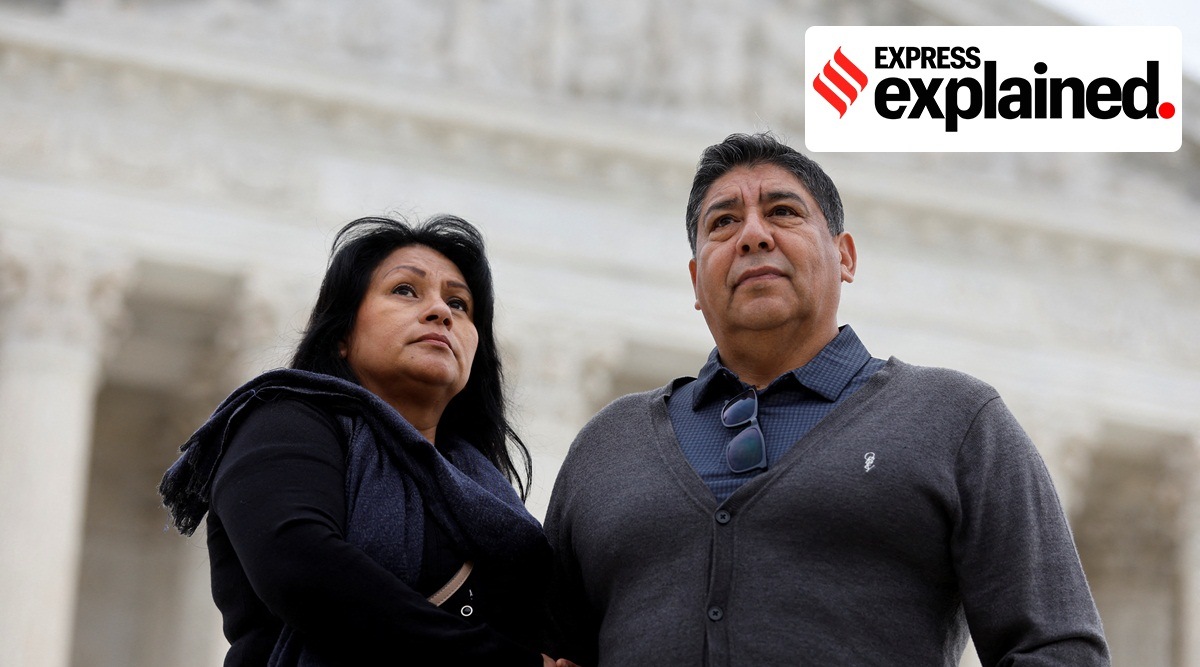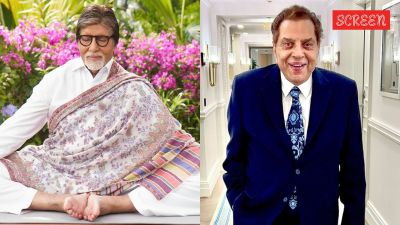Is Google aiding terror? US Supreme Court to hear vital challenge to legal protection enjoyed by tech platforms
Family of Nohemi Gonzalez, who was killed by ISIS in Paris in 2015, has sued Google in 'Gonzalez vs Google'. Separately, SCOTUS will hear 'Twitter vs Taamneh', in which the use of a US anti-terror law is in question.
 Beatrice Gonzalez and Jose Hernandez, the mother and stepfather of Nohemi Gonzalez, who was killed in a 2015 rampage by Islamist militants in Paris., photographed outside the US Supreme Court. (Photo via REUTERS/Jonathan Ernst)
Beatrice Gonzalez and Jose Hernandez, the mother and stepfather of Nohemi Gonzalez, who was killed in a 2015 rampage by Islamist militants in Paris., photographed outside the US Supreme Court. (Photo via REUTERS/Jonathan Ernst) The Supreme Court of the United States (SCOTUS) will begin hearing from Tuesday arguments in ‘Gonzalez vs Google’, a case that challenges the legal protection offered to tech giants from any liability for posts by third-party users on their platforms under Section 230 of the Communications Decency Act of 1996.
What is this case about?
The case was originally filed by the father of Nohemi Gonzalez, a 23-year-old student from California State University who lost her life in the terrorist attacks in Paris in 2015, which were claimed by the Islamic State (ISIS).
The Gonzalez family sued Google and other platforms like Twitter and Facebook for dissemination of extremist content such as ISIS recruitment videos and messages from terrorist leaders which were used to “radicalize the users into becoming terrorists,” The New York Times reported.
However, in 2017, Twitter and Facebook were removed as defendants, leaving Google alone in the legal battle. When the case came before the United States Court of Appeals for the Ninth Circuit, Google denied the allegations of supporting terrorism, saying they were unsubstantiated assertions and speculation.
On June 22, 2021, the court granted protection to the tech giant under Section 230, after which the petitioners filed an appeal before the SCOTUS.
What is the argument of the petitioners?
The case places reliance on a US federal law that states “Any national of the United States injured in his or her person, property, or business by reason of an act of international terrorism, or his or her estate, survivors, or heirs, may sue therefor in any appropriate district court of the United States and shall recover threefold the damages he or she sustains and the cost of the suit, including attorney’s fees.”
Additionally, the case challenges the legal protection enjoyed by tech platforms under Section 230 of the Communications Decency Act with respect to posts by third-party users on their platforms and argues that social media companies are not doing enough to keep terrorists off their platforms.
The plea draws attention to the pro-ISIS recommendations generated by YouTube’s algorithm and contends that this is the platform’s “own form of content”, as it is produced by it. The judgment in the case will clarify whether the immunity under Section 230 will extend to algorithms.
What is Section 230 of the Communications Decency Act?
This provision immunizes online platforms from incurring liability for content posted by their users. Also, the First Amendment says that Congress shall make no law that restricts the freedom of speech or the press.
In recent years, there has been a rise in courts citing Section 230 to protect social media companies from liability, as witnessed in the 2019 ruling given by the Ninth in ‘Dyroff vs. Ultimate Software’, where the protection was extended to targeted recommendations.
And what is the ‘Twitter vs Taamneh’ case?
A related case that the SCOTUS will hear just a day after ‘Gonzalez’ is ‘Twitter vs. Taamneh’, which will clarify whether social media companies can be legally sued for aiding and abetting acts of terrorism for hosting certain kinds of content.
At the beginning of 2017, an ISIS gunman carried out a mass shooting at a nightclub in Istanbul, Turkey, in which 39 people lost their lives. One of them was Nawras Alassaf, a man whose family in the United States claimed that social media companies were responsible for terrorist attacks.
This case holds Twitter, Facebook, and Google accountable. But rather than challenging the applicability of Section 230, it places reliance on the federal anti-terrorism law.
The larger question of whether online speech on the Internet can be unfettered and free from any checks or balances has gained currency in light of growing disinformation, propaganda, and new avenues for online manipulation.
- 01
- 02
- 03
- 04
- 05






































